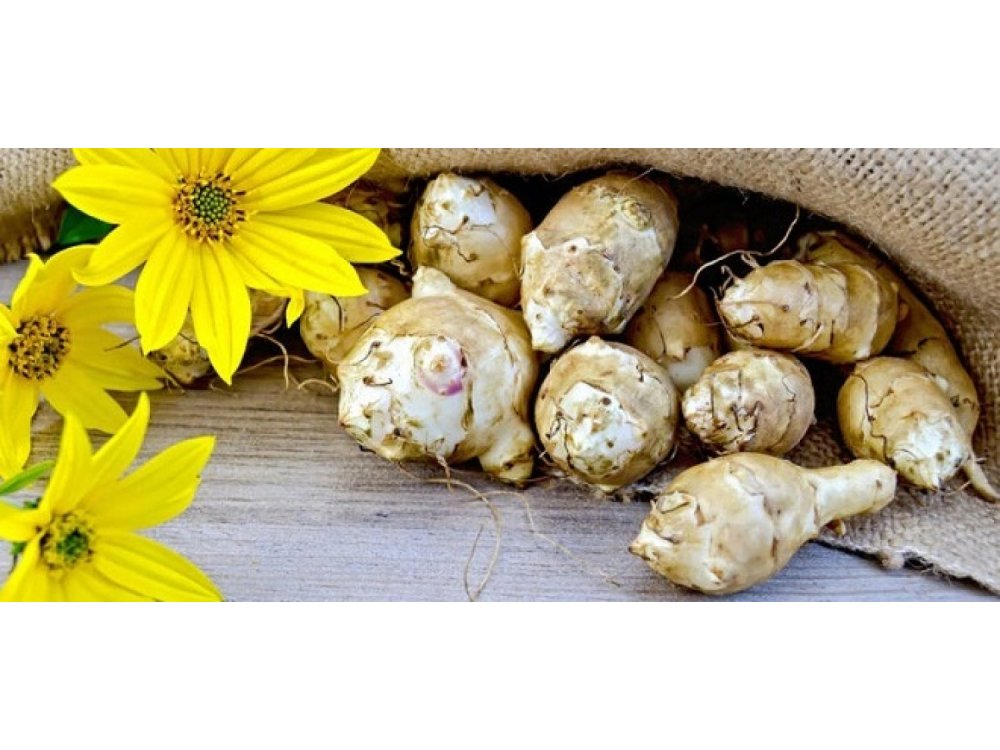Product description
Actually, the Jerusalem artichoke has nothing to do with Jerusalem, but neither does the artichoke, as it belongs to the Asteraceae family. Jerusalem artichoke (Helianthus tuberosus) is a root vegetable. Specifically, it is a herbaceous perennial plant that reaches 1.5-3 meters in height.
It has yellow flowers, with a diameter of 5-10 cm while its tubers are 7.5 to 10 cm long and 3 to 5 cm thick. It looks like ginseng root, has a coarse shape, varies in color from light brown to white, red or purple, has a sweet taste and is crunchy.
Jerusalem artichoke has various names. Also called sunroot or sunchoke or earth apple or topinambur.
Cultivated on the American continent, by native Indians, it was first brought to Europe in 1610 by the French immigrants of North America/Canada. The name Topinambur was taken from the name of an Indian tribe in Brazil. It helped French immigrants survive the famine and was sent to France and the Vatican. The English, unable to pronounce the word girasole, called it "Jerusalem Artichoke", while the Pope's gardeners called it "girasole articiocco". However, the origin of the name is uncertain.
Nutritional value
Jerusalem artichoke contains probiotic fibers and in particular is very rich in inulin, a carbohydrate that:
It is associated with good gut health.
It has been shown to reduce the risk of constipation.
It increases the intestinal absorption of calcium and magnesium by the body.
It can reduce cholesterol and the risk of developing dyslipidemia.
It improves bowel motility and can reduce the risk of certain types of cancer.
Inulin is a carbohydrate that breaks down into fructose. Fructose is not used to treat diabetes, but it is considered better than sugar for most diabetics.
The high levels of fructose found in the food make it an attractive alternative to sucrose, since fructose is easily extracted from the bulbs. Increases in international sucrose prices encourage the use of alternative types of sugars. Since fructose is 1.5 times sweeter than sugar, it gives lower calories than the sweetness it offers. It also contains vitamin C, phosphorus, thiamin, potassium and is a very good source of iron.
Analysis of the nutritional value per 100 grams of raw Jerusalem Artichoke:
Calories (kcal)
Calories: 73
From Carbohydrates: 67.4
From fat: 0.1
From Protein: 5.6
Carbohydrates (gr)
Total Carbohydrates: 17.4
Dietary fiber: 1.6
Sugars: 9.6
Fats and Fatty acids (gr)
Total Fat: 0.0g
Saturated fat: 0.0g
Total trans fatty acids: 0.0g
Total omega-6 fatty acids: 1 mg
Proteins and Amino Acids (gr)
Proteins: 2gr
Vitamins
Vitamin C: 4.0mg
Niacin: 1.3mg
Folate: 13.0mcg
Pantothenic acid: 0.4mg
Choline: 30.0 mg
Minerals (amounts per 100g portion)
Calcium: 14.0 mg
Iron: 3.4 mg
Magnesium: 17.0 mg
Phosphorus: 78.0 mg
Potassium: 429 mg
Sodium: 4.0 mg


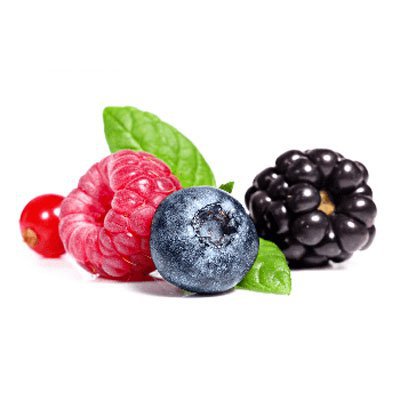
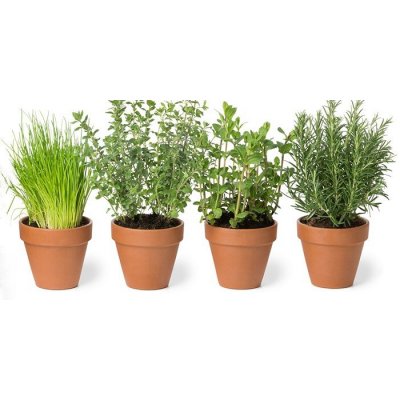
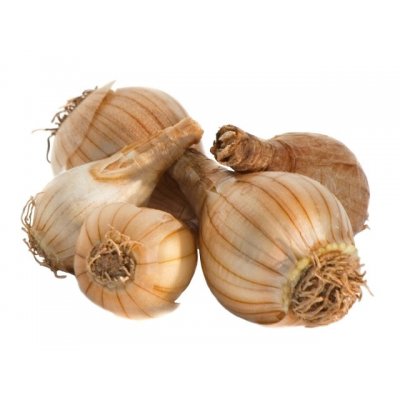
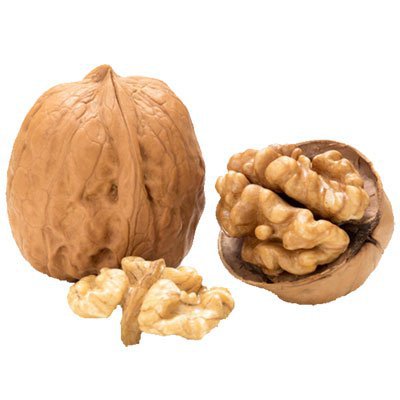
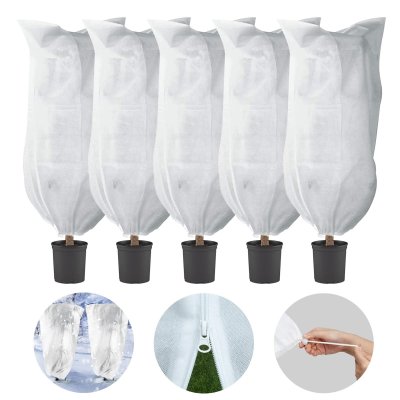
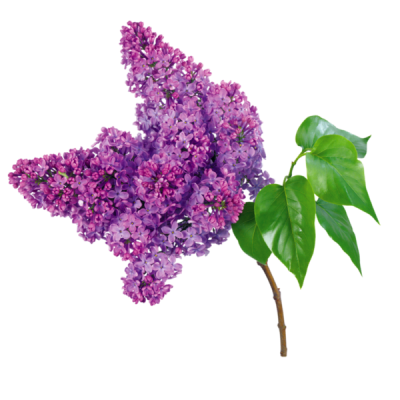
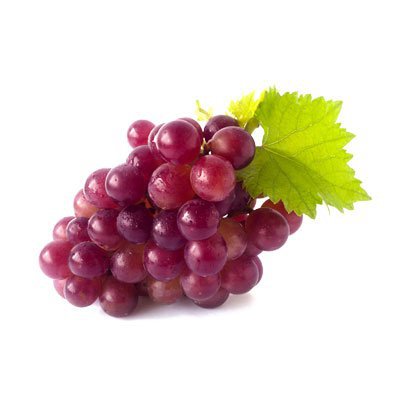
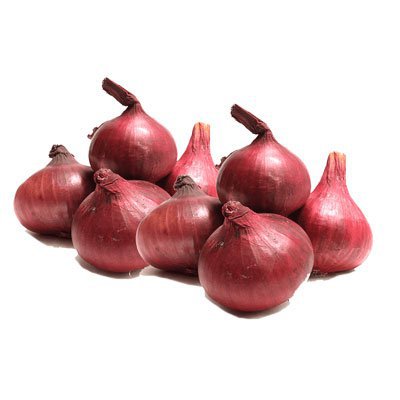
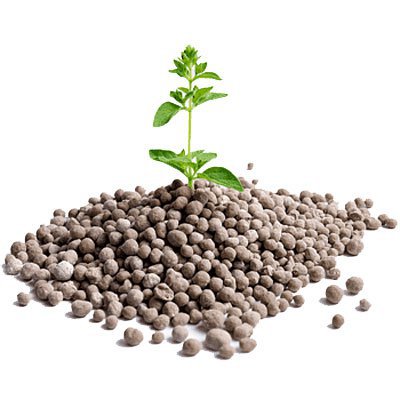
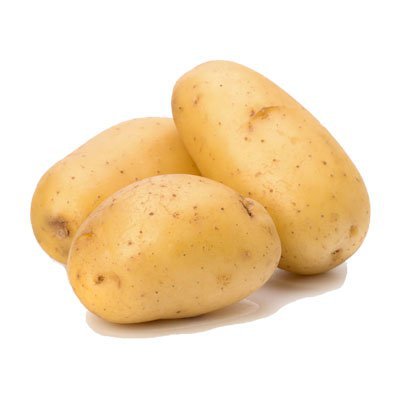
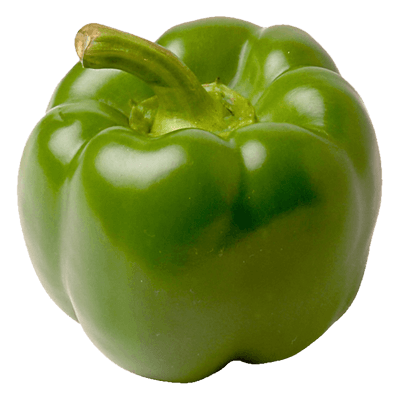



 Forest Fruit Plants
Forest Fruit Plants Spice Herbs Medicinal seeds
Spice Herbs Medicinal seeds Bulbs
Bulbs Fruit Trees
Fruit Trees Garden Materials
Garden Materials Ornamental Plants
Ornamental Plants Grapevine Plants
Grapevine Plants Onion Set
Onion Set Fertilizers
Fertilizers Potato seed
Potato seed Seeds
Seeds Roses
Roses Tropical Plants
Tropical Plants Home Pesticides
Home Pesticides